As an American, I’ve always naturally been drawn to living literally anywhere but here. Given all the “my life is so much better now that I’ve moved to Europe” content I’ve been getting, it’s easy to imagine a dreamy life abroad.

But, since I know that’s only my little naive brain talking and no experience is perfect, I decided to ask the BuzzFeed Community what their biggest challenge was when they moved to another country. Here were their incredibly eye-opening responses:
1.“I moved from France to the US and I still don’t know how to interact with people. The French are known to be rude, so I try really hard to be nice, but I never know how to greet people or if I should smile at the cashiers. Everyone seems very sweet here but they are also very quick to be offended. That’s another problem — French people are often very sarcastic with each other and are jokingly mean to break the ice or play around with friends. That is NOT working in the US.”
2.“I moved from Puerto Rico to California. I didn’t think it would be a huge cultural difference since PR is a territory of the US, but boy was I wrong. I remember when I first arrived in LA someone said, ‘Just wait, you’ll be picking your friends based on where they live. Traffic is horrible,’ and I thought that was such a heartless thing to say.”

“I had friends all over my island and didn’t mind driving the hour and a half to see them (that’s how long it takes to cross). I had never experienced traffic like LA’s for a long period of time, though, and I did begin to get really exhausted from sitting in traffic. The other big one is how people are so isolated from each other: there’s no sense of community. I felt lonely for the first time in my life. It was hard.”
—Anonymous
Brandon Rosenblum / Getty Images
3.“I moved to Beirut, Lebanon in 2002. I never lived outside the US, so it was a real culture shock. The internet was awful and expensive. Electricity went out for three hours a day, longer in the summer because of AC use. The driving was very reckless and it seemed like no one got stopped for speeding or running red lights. Some nights I’d wonder if the sounds I heard were bombings or fireworks — both were common. Moved back to the US in 2016. Glad to be back but it can be scary here, too, with the lack of gun control and Trump.”
4.“I moved to South Korea from the United States in the middle of the pandemic. My employer was forced to restructure and my job was eliminated so I took the severance package offered and decided to make a life-long dream of living abroad a reality. I don’t regret the decision AT ALL. But moving to a new country is difficult.”
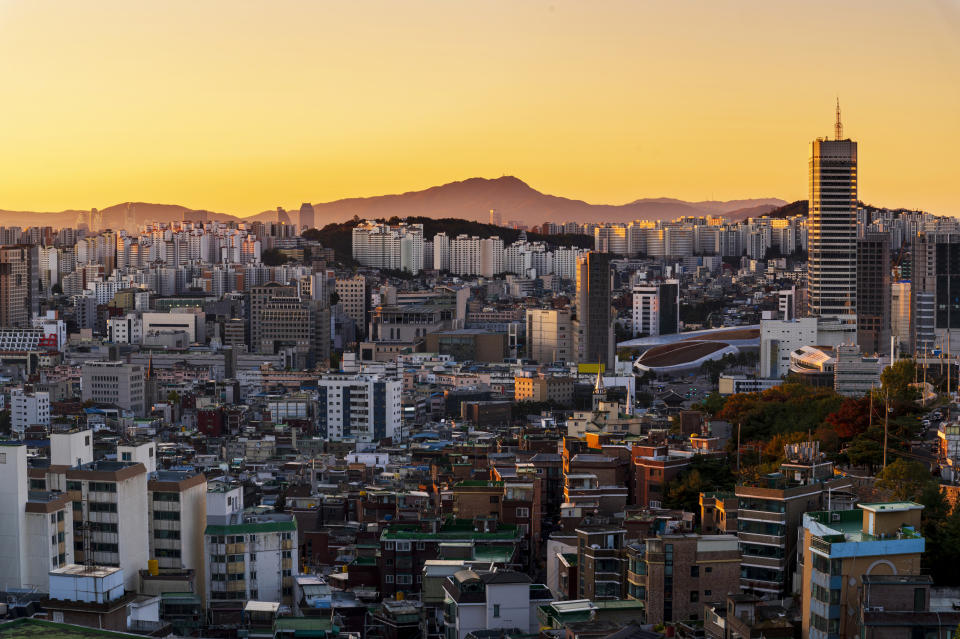
“I’ve lived here for three years and I still get overwhelmed by simple tasks. I spent years developing adult skills in the US and now they’re basically useless. When it’s time to wash my car, I hope the attendant doesn’t use a different sentence than I’m used to because chances are I’ll order detailing instead of a drive-thru service. If I have to dispose of anything larger than a grocery bag, I have to go to the local government office to order a disposal tag and schedule a pick-up — cue nausea. And honestly, the post office may as well not exist for how effectively I’ve avoided it thus far.
While I’m overall in a better place, I’m constantly tired because my brain is constantly working to read, speak, and understand a foreign language in a setting where nothing works the way I’m used to. I’m like a toddler with an adult body and responsibilities.”
—Anonymous
Lukyeee1976 / Getty Images
5.“The guns. I had never in my life seen a gun in person until I moved to America. I lived in the South for over a decade and it seemed like every single person had one. I now live in the Northeast and I’ve seen cops bristling with guns in the mall. There have been two fatal shootings within 20 minutes of me in the last six months and a city with weekly shootings 45 minutes away. I will never ever ever get used to it.”
6.“I’m originally from the US and now I live in Spain. I actually knew the language before I moved here, but the differences between the different kinds of Spanish still throws me off sometimes. As far as cultural shocks, the schedules took some getting used to. I don’t eat dinner at 10 p.m., but my mealtimes have definitely still shifted to later in the day. I also get stared at a lot because I’m much taller than the people here. The bureaucracy also took a lot of getting used to. Some government offices give you your answer in a reasonable amount of time, and others take ages. It often depends on the worker. Other times it’s the city.”
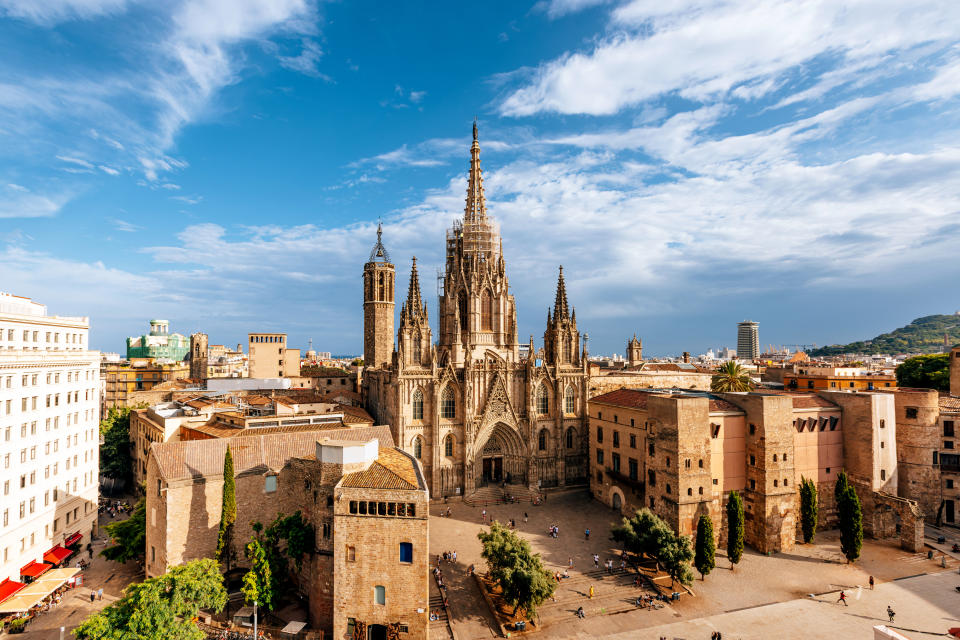
—Anonymous
Alexander Spatari / Getty Images
7.“I moved from the US to the UK and the hardest part was shopping: having to figure out what the good brands were and where to find certain products. There is no Target for one-stop shopping so I’d go grocery shopping at one place and then a pharmacy for other things.”
“Sometimes I’d have to go to three different places to get what I needed for the week. The OTC medication isn’t as strong as it is in the US, so when I had a cold I felt like the medicine did nothing for me. I much prefer the strong ‘put me in a coma’ meds. Then there are the restaurants. I’m used to great Mexican and there’s none. I’d come home on holidays and be on the plane thinking ‘I’m getting tamales tonight!'”
8.“Figuring out bureaucracy. I’ve lived in France for two years now and French bureaucracy makes me want to actually bash my head in sometimes. Everything takes forever, I don’t fully understand the language, there are a million hoops to jump through, and it’s never-ending. Everything costs money, time, and peace of mind, and it just keeps getting harder. I know it’s even worse in other places or if you’re coming from other places. The system is constantly working against you at every turn — it’s incredibly frustrating.”

9.“Moved from the US to the UK for several years. It was little things: not having a garbage disposal in the sink (you’re supposed to put all your food and garden waste in a green bin to be composted), not having AC in our house and no screens on the windows, and (this annoyed me the most) no light switches or electrical outlets in bathrooms — if I wanted to dry or straighten my hair, I had to do it in my bedroom. Overall, I enjoyed living overseas, but there were definitely American creature comforts that I missed.”
—Anonymous
10.“I moved to America from Iceland. The hardest thing might have been getting used to the heat! Iceland is a pretty cold country and I moved to Louisiana in the middle of the summer, so that was an adjustment.”

—Anonymous
Simpleimages / Getty Images
11.“I moved from the US to China and trying to adapt to a culture that is so completely different than yours is really tough. It helped me grow as a person and see others’ differences as something more than just a stereotype. But even though I now understand the origin, it isn’t always easy to adapt to the nuances that are rooted very deep into any culture.”
“There were days when I wasn’t able to understand anything going on around me, where I didn’t agree with the approach to a conflict, or where my personal space was violated. Those days can be tough. But I’ve yet to visit a country without a wonderful group of expats all going through the same thing. It really showed me that you can find your people anywhere.”
12.“I’m from good ol ‘Merica and moved to Berlin, Germany for two years. The first huge challenge was definitely the language! I seriously underestimated how much I would struggle to learn a new language and even failed my very first (very basic) language learning class. It was also challenging because most people in Berlin can speak English, so I had to force myself to speak German, even when I sounded really stupid and people would kindly switch to English to help me.”
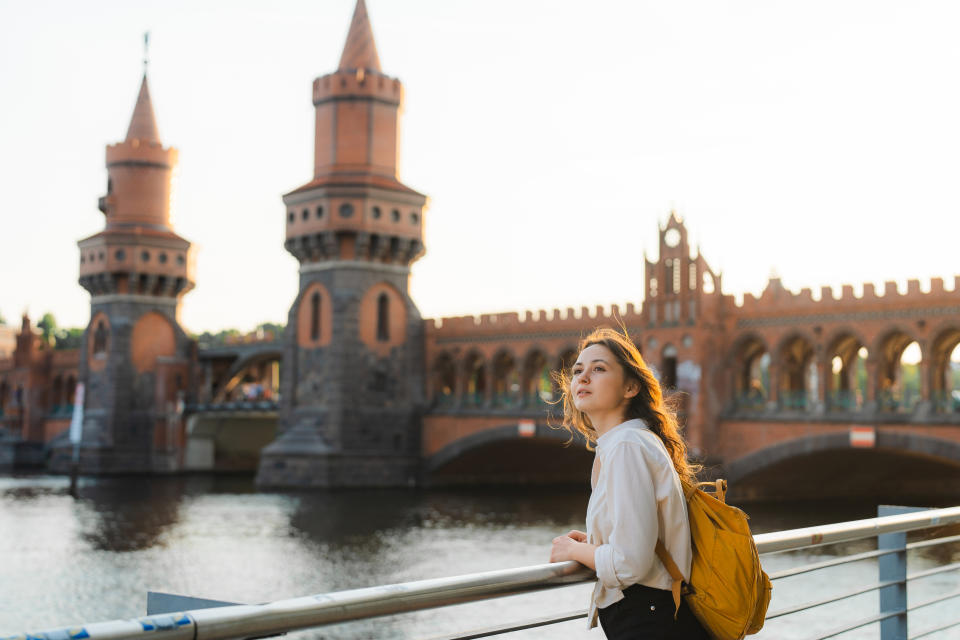
“Something else challenging I didn’t know about was how difficult the housing situation is in Berlin. There’s been a serious housing shortage for years now which results in most people moving every few months until they finally luck into a place where they can live permanently. I know of one person who moved every few months for over a year before he could find a long-term apartment.
I only had to move twice, but ended up settling into an apartment with roommates that were really unkind to me, resulting in a fairly toxic situation after a while. I wanted to move to a happier and healthier living situation, but I felt stuck since I knew it would be really really hard to find another place to live. Also, Berlin is way colder and windier than I expected! I pretty much had to get a whole new wardrobe and learn how to layer well to survive my first winter there.”
—Anonymous
Oleh_slobodeniuk / Getty Images
13.“For myself, it was the intense loneliness of moving from Scotland to Germany. It wasn’t just that all my friends and family were gone, but that small talk wasn’t a thing at all. If I was feeling a bit isolated, I would head out to the post office or whatever. Back home, someone would give you some banal chat about the weather, but in the city I was in, you hardly got a ‘hello.’ Until I started working full time and made friends that way, I was trapped in my little bubble of isolation.”
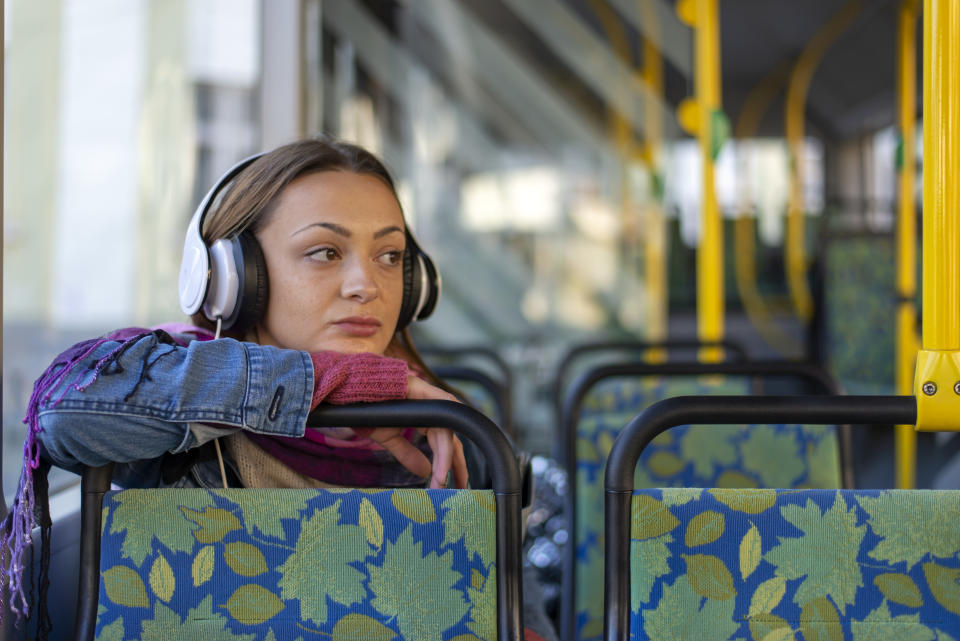
14.“I grew up in a middle-class suburb in Connecticut. After graduation, I moved to Oaxaca, Mexico to work in an orphanage and with poor children in the community. The toughest part was adjusting to a new place surrounded by so much poverty, and I realized how much of my life I had taken for granted. These children had never seen a doctor, but my mom would take our cats to the vet to get their teeth cleaned. Their families lived in tin roof shacks with cardboard walls, and, back home, we had built a garage to house our cars. It was all so overwhelming and I was extremely depressed when I came home.”
—Anonymous
15.“I moved around a few times during my childhood before spending my formative years in the UK ahead of a move to the Netherlands in 2016. It’s not far from the UK (a one-hour plane ride from Amsterdam to London) but I don’t go back very often. Though I keep in touch with friends, one of the hardest things has been accepting that their lives go on when you move away — time doesn’t stop.”
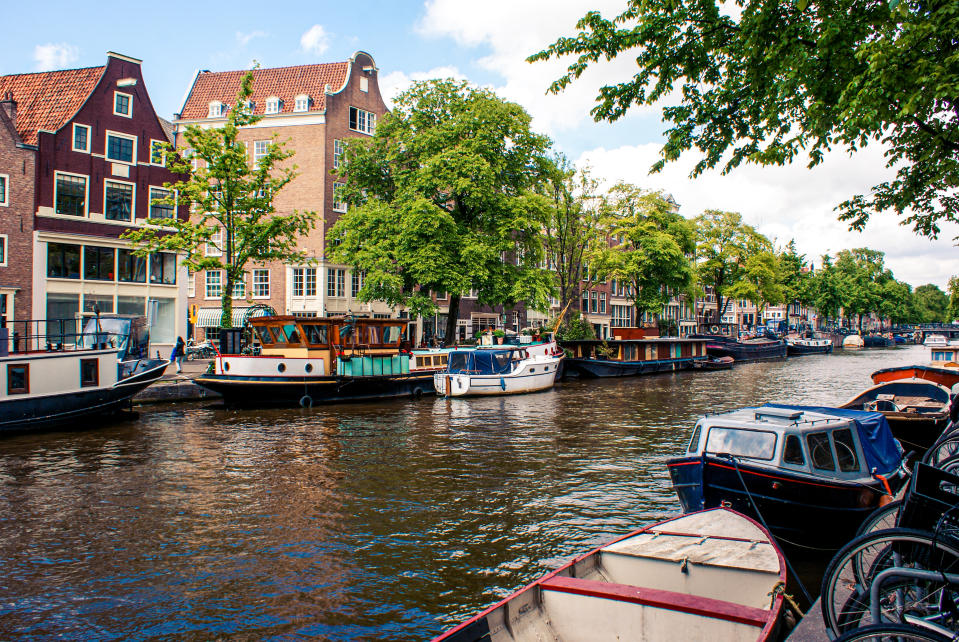
“It’s easy for you to get out of the loop and lose touch with people due to the distance and lack of continued things in common. And perhaps the worst thing is knowing that you caused it: You chose to move away and change the circumstances of the relationship, not them. Also, though some friends might visit once in your early days abroad, the onus soon falls on your shoulders to make the trip back to the UK if you want to see people in person.”
—Anonymous
Niklas Storm / Getty Images
16.“We moved from New Zealand to Germany for work. Massive culture shock in terms of helping behavior. In my experience, NZ people seem to offer help (even to strangers) out of instinct or habit, and if they can’t help you, they will go out of their way to help you find someone who can. We found in Germany that unless you explicitly ask for help with a very precise question, people will not help you with ANYTHING.”
“None of my colleagues even asked how we were settling in, let alone offer to help with that. There were so many niche and culturally specific things we learned the hard way because we didn’t know about them, and no one offered help or advice ahead of time. Funnily, when a colleague was shifting apartments in Germany and we offered to help them move, they were utterly shocked that we would offer such a thing. To us, it was the normal and obvious thing to do.”
17.“I am from the United States and moved to Denmark. I would say the hardest thing for me was adjusting to product selection. When it comes to toiletries, I can’t afford shipping things in or going to Sephora for everything so I had to adjust very quickly to the brands available at local stores.”

“It was the little things, like hair care for curly hair and shaving products because so many people in Denmark do laser treatments instead. Grocery stores are designed differently and things you might expect to be able to get at Aldi or Netto, you actually have to get at an apothecary (pharmacy) or specialty store in town. The first few times I went grocery shopping, I couldn’t really make a list because I couldn’t be certain what I would be able to get. It took at least a few months for me to adjust and be able to make a full grocery list to get everything I needed.”
—Anonymous
Jackf / Getty Images
18.“I’m from Toronto and I moved to Seoul. I had a way more positive experience than negative — I stayed for six years and even married a Korean man. But that doesn’t mean there weren’t serious challenges. For those who don’t know, Toronto is an incredibly multicultural city and I had literally never had an experience of being surrounded by just one ethnic group before: not in my family, friends, or public spaces. The transition to Korea’s monoculture shook me way more than expected!”
“Alongside that, I was naively unprepared to be fetishized by a subset of local men just for being white. The stares, the comments, the catcalls…I wish I could unlearn terms like “white gold” or “riding the white horse.” I was propositioned for sex by men on the street at 4:30 p.m. while walking home dressed in business casual work clothes. My Korean coworkers and female friends were always surprised, but my international friends all had similar stories.
Luckily, there are so many more good people than bad — every country has its share of jerks! I moved back to Canada in 2017 but still go back as often as possible to visit my in-laws and friends. Korea truly became my second home.”
—Anonymous
